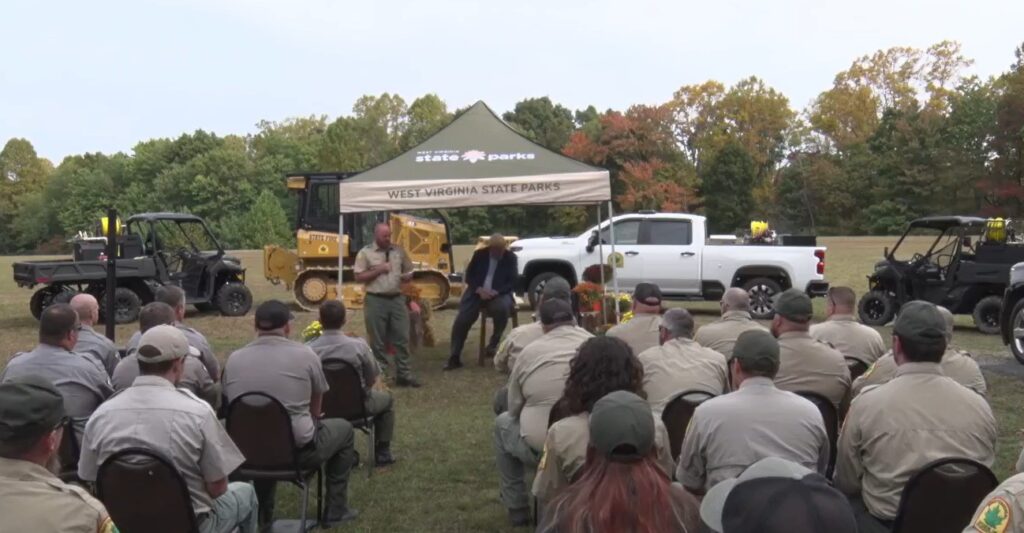By Chris Mc Loone
As we begin 2013, I pose a challenge to the fire service: Let’s get through this year with no apparatus accidents or line-of-duty deaths (LODDs) because of them. I’m laying down this gauntlet because I’m really getting tired of reading about them. Not only am I tired of reading about them, I’m disgusted that some in our profession just accept that they are going to happen. There are so many unpredictable events in our profession. We must demand that our officers, apparatus operators, and those who train the operators control what is within their realm.
Ultimately the place to start, in my mind, is to get these operators to slow down. Is it really that hard to do? You get moving, you look at the speedometer, you know you’re going to fast, so you take your foot off the accelerator. The National Fire Protection Association (NFPA) can’t do everything for us, and even if it could, unless it is going to mandate that fire apparatus be equipped with governors that don’t allow them to travel at speeds greater than 45 miles per hour (mph), it is still on the operator to do the right thing. But what if he doesn’t?
There’s a person sitting on the opposite side of that cab who has been selected to ride there because he has demonstrated that he knows enough to be handed the privilege of leading the troops into battle. Officers, tell your drivers to slow down. You don’t need a speedometer on the officer’s side of the truck to tell you when you’re going too fast if every time the driver applies the brakes your seat belt locks or you’re grabbing the bar in front of you to brace yourself. You can’t lead the troops into battle if your truck rolls over and you become a second incident.
There are so many unpredictable events in our profession, as I mentioned above. Here’s one for you. During the height of Hurricane Sandy, in my area of Southeastern Pennsylvania, we experienced winds that I have never experienced before. Although we didn’t respond to the most calls in our township, we did respond to 26 in about six hours. Many of these calls were for trees that had fallen into houses. Some caused major damage, others were more or less leaning into the houses. While we were en route to one of these calls, a tree fell immediately in front of our engine. A few miles per hour faster and the tree would have fallen into the truck cab. But, the truck was moving fast enough where the timing of the tree falling precluded the operator stopping. It was a thin enough tree that as the officer “riding the seat” said, the truck “blew through the tree.” The truck sustained damage that included shearing the bell from the front truck and destroying the “Q.” There was also minor body damage. I like to think it is because the operator of the truck, an engineering officer himself-you don’t get that position by accident-was driving in such a manner that he was able to maintain control of the apparatus. No, there wasn’t enough time to avoid the tree as it fell across the roadway, but the situation could have been much worse were he not driving with self control.
I’m not sure why I’m fired up about this issue this month. Perhaps it’s because I really feel that most of our apparatus accidents are avoidable. If something is avoidable, that means it’s predictable in my book.
Here’s something that wasn’t predictable and really the source of my true pain this month: I lost a friend and fellow firefighter in early December. He was 32 years old, and he died following a “freak” accident. He was a volunteer firefighter in my fire company. He was as squared away a firefighter as you’ll ever meet. And, that trait followed him in his job working for a tree service. He was on a job site on the day before Thanksgiving, and a branch broke free, striking him in the head. He never woke up. The branch breaking free in this instance was not predictable. If it was, he wouldn’t have been where he was when the branch fell.
Additionally, I moved up to assistant chief at my fire company effective January 1. Perhaps a heightened awareness to things one is already cognizant of comes with any promotion, but the more I read about these accidents, the more I feel that an apparatus accident in which the apparatus operator is at fault is just 100 percent unacceptable. Fire departments really should have zero tolerance for them.
So, as I write this, it is the beginning of December. 2013 is less than a month away. We have 12 months to get our apparatus operators to slow down-to control what we can predict. Speed is within our control; trees falling in the roadway are not. I’ll be ecstatic in January 2014 when I can say we did it.

